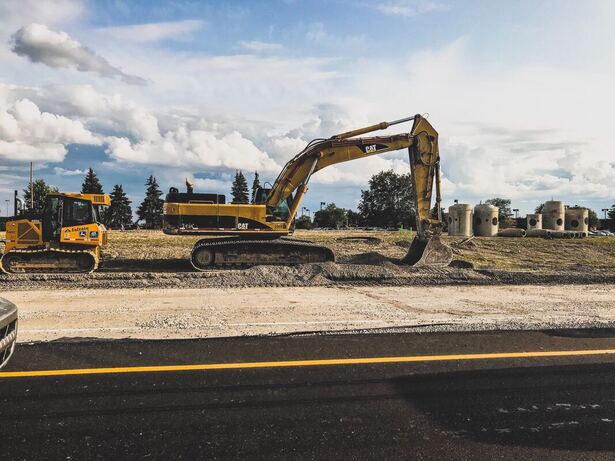|
By Attorney Kelly Rains Jesson
In addition to celebrating Christmas, Hanukkah, and Kwanzaa this month, December is National Write a Business Plan Month! The holidays are a time for reflection and a time to look forward to the future, and if you’re thinking of starting a business in 2020, you should consider spending some time during your holiday break writing a business plan. While a business plan is not a legal requirement for starting a business in North Carolina, there are some benefits: Writing a business plan helps you figure out your ideal business structure. As we wrote here before, you have several choices of entity in North Carolina, and they each have their pros and cons. Writing a business plan helps you attract investors, partners, and key employees because it helps them envision the future and it shows you are responsible, serious about the success of the business, and strategic. Some lenders will require a business plan before issuing a business loan. Writing a business plan helps you create a budget by planning for expenses and estimating revenue. Finally, you can include goals and milestones in your business plan and then celebrate when you reach them in 2021! Everyone here at Jesson & Rains wishes you a Merry Christmas and a happy holiday!
2 Comments
By Attorney Edward Jesson
I am excited for the opportunity to speak to you each month about legal issues in the construction industry. My name is Edward Jesson, and I am a partner with the law firm Jesson & Rains, PLLC based in Charlotte, North Carolina. I grew up in England and moved to the United States in 2005 to attend college in South Carolina before moving to South Florida for law school. Our firm protects businesses and their owners, specifically those in construction and related industries. My wife and I previously practiced in South Florida prior to opening Jesson & Rains in the fall of 2015. In keeping with the theme of this first issue of Building Savvy, I think it’s important to be aware of a specific contract provision that can save the profitability of many jobs: Differing Site Conditions. Coming across an unexpected site condition is a fairly common risk in a construction project, especially for those involved in new construction or those involved in the grading industry. Put simply, “differing site conditions” are generally considered to be a condition that is discovered while performing work on a project that was not apparent, visible, or expected at the time the project was bid. The majority of times these differing site conditions would be ones that could not have easily been discovered if the contractor had engaged in a reasonable site inspection during the bidding/quoting process. A good example of a differing site condition that you might encounter throughout the country would be unanticipated ground water. You could also come across differing site conditions during remodels -- a historical renovation would be one such example -- such as something in the walls that wasn’t expected or couldn’t have been uncovered with a reasonable inspection of the property (i.e. without tearing into walls to see what you find—which a lot of homeowners probably wouldn’t be too happy with during the bidding process!). This presents a problem in construction projects, especially those that are for a fixed price. If you quote a homeowner $500,000 for a new build, and then encounter a differing site condition, the costs of construction can skyrocket. Without the proper contractual provisions in place, the homeowner may not be willing to pay those increased costs, nor may they be legally required to. Issues can also arise as differing site conditions will often involve a delay in the completion date of the project; something which owners, both residential and commercial alike, are often none too happy about. One of the main purposes of contracts in the construction industry is to assign various risks to parties to that contract before the work begins. This can clearly be seen with differing site conditions clauses in contracts. The differing site conditions clause in AIA 201-2017 states: If the Contractor encounters conditions at the site that are (1) subsurface or otherwise concealed physical conditions that differ materially from those indicated in the Contract Documents or (2) unknown physical conditions of an unusual nature that differ materially from those ordinarily found to exist and generally recognized as inherent in construction activities of the character provided for in the Contract Documents, the Contractor shall promptly provide notice to the Owner and the Architect before conditions are disturbed and in no event later than 21 days after first observance of the conditions. The Architect will promptly investigate such conditions and, if the Architect determines that they differ materially and cause an increase or decrease in the Contractor’s cost of, or time required for, performance of any part of the Work, will recommend an equitable adjustment in the Contract Sum or Contract Time, or both. If the Architect determines that the conditions at the site are not materially different from those indicated in the Contract Documents and that no change in the terms of the Contract is justified, the Architect shall promptly notify the Owner and contractor in writing, stating the reasons. If either party disputes the Architect’s determination or recommendation, that party may proceed as provided in Article 15. AIA agreements are often standard in the commercial construction industry, though much less used on the residential side of things. While that AIA clause is certainly more than you would need for most residential construction projects, it is illustrative of what a differing site conditions clause tries to do. If the contractor notifies the proper people promptly (in this case the owner and architect, but on the majority of projects it would likely just be the owner), the owner must adjust the contract price accordingly to reflect the extra work that will be done and, if necessary, adjust the time required for performing the contract. Contractors would be wise to consider using a differing side condition clause in their contract. A simple differing site condition clause, in addition to a well written contract in general, can help protect against the unexpected and, more importantly, help a contractor protect its profit when such conditions are discovered. |
Subscribe to our newsletter.AuthorKelly Rains Jesson Categories
All
Archives
July 2024
|
|
SERVICES |
SUPPORT |
©Jesson & Rains, PLLC ALL RIGHTS RESERVED.



 RSS Feed
RSS Feed

